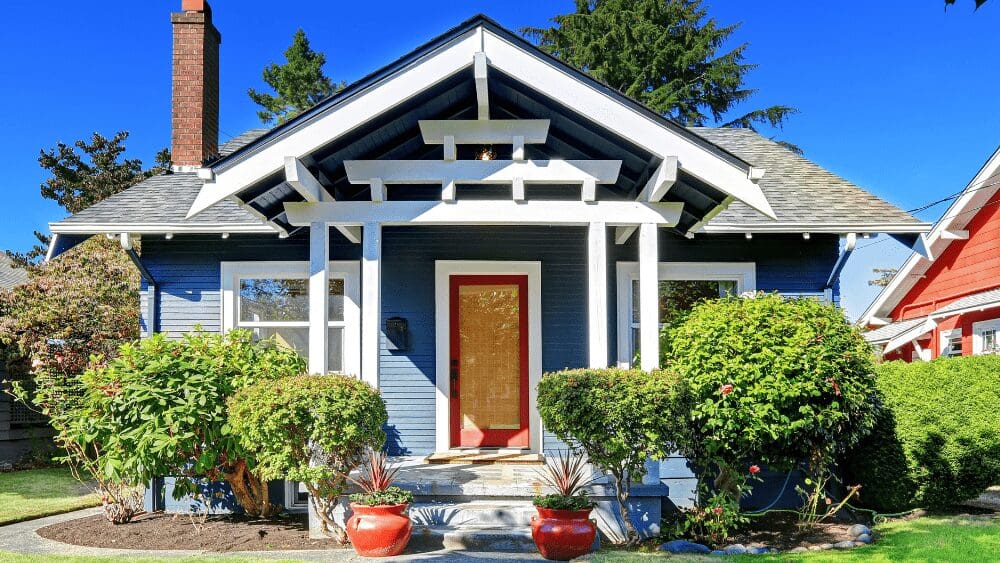It wasn’t long ago that the decision to sell your house for cash was associated with a neglected or foreclosed property whose value had plummeted, as an investor swooped in to snatch it up for a bargain.
While that still happens in scenarios where a seller can’t afford repairs or is facing serious issues with a property, cash sales have expanded beyond the distressed homes market as sellers benefit from new technologies, instant sale platforms, and a competitive housing environment that has increased the percentage of cash offers.
Sell Your House Fast With a Cash Offer
HomeLight’s Simple Sale platform connects sellers with cash offers. Clients don’t have to worry about additional repairs, prepping their home for listing, or showing their home.
Let’s take a look at what it means to sell your house for cash in today’s market.
Cash’s continued clout
With the competitiveness of the market, cash has persisted. Buyers who can make all-cash offers are doing so to avoid higher mortgage rates, and that’s good news for sellers. Cash deals typically move faster and come with fewer obstacles, like financing approvals or last-minute appraisal issues. They also reduce the chances of a deal falling through, giving you more peace of mind.
Plus, in some instances, cash buyers are often willing to purchase homes as-is, saving you time and money on repairs. That’s why cash still carries serious weight in today’s market.
In June 2025, all-cash purchases accounted for 29% of all home purchases, according to the National Association of Realtors (NAR), roughly 1 in 3 homes.
“For buyers who have the means, paying in cash is a way to get a leg up against other offers, because sellers will almost always prefer a cash offer to an equivalent financed offer and will sometimes even prefer it to a higher financed offer,” says Eric Hughes, founder and CEO of Rental Income Advisors, which educates aspiring investors on acquiring and managing profitable rental properties.
Who’s paying cash for houses?
Cash buyers generally fall into a few camps: high-tech iBuyers, rental investors, house flippers, and individuals who pay cash on the open market. Here are some of the most common sources of cash offers in 2025:
iBuyers
Instant buyers, or iBuyers, are the newest players in the cash sale game, popping up around the mid-2010s.
What’s an iBuyer?
An iBuyer is a company that purchases properties primarily online, often sight unseen, using algorithmic technology to determine what they’re willing to pay for homes.
Unlike house flippers, iBuyers tend to target homes in fair to good condition, and they purchase a higher volume of homes than flippers, who do a few properties per year.
iBuyers offer a mostly online home-selling experience that puts seller convenience at the center in exchange for a service fee that’s typically around 5% to 6% of the property’s sale price.
Who are the top iBuyers in 2025?
Some of the most popular and reputable iBuyers include Opendoor and Offerpad. Opendoor bought 3,609 homes in the first quarter of 2025, up 4% from the first quarter of 2024 and 22% from the fourth quarter of 2024. Meanwhile, Offerpad acquired 454 homes in Q1 2025, an 18% increase from Q4 2024.
Another popular iBuyer is HomeLight’s Simple Sale. Simple Sale connects sellers with a network of pre-approved cash buyers. It’s designed to provide a fast, no-obligation offer—often within 24 hours—without the need for repairs, showings, or agent commissions.
Another well-known iBuyer is HomeLight’s Simple Sale platform, which matches sellers with a network of pre-approved cash buyers. Designed for speed and convenience, Simple Sale offers a streamlined process that lets sellers receive instant cash and bypass repairs, showings, and agent fees, making it an efficient option for those seeking a hassle-free sale.
How do iBuyers work?
When working with an iBuyer, sellers generally fill out some information online and receive a cash offer for their home within a week, and sometimes as quickly as 24 hours.
If the seller accepts, the iBuyer may perform an in-person or virtual home condition assessment and determine if they’ll collect a repair credit or reduce their offer price based on the findings.
iBuyers then allow the seller to close in as little as 7 to 10 days, but can also provide longer move-out timelines for those who need the flexibility.
Why sell to an iBuyer?
People who need to sell fast, hate the idea of showing their home, or don’t want to deal with home prep may be inclined to pursue an iBuyer offer. For sellers facing a tight timeline, job relocation, or financial pressure, the simplicity and speed of an iBuyer can be especially appealing.
Buy-and-hold investors
In real estate, a buy-and-hold investor is someone who buys a house and plans to keep it for a while — typically to collect rental income. They can be a real estate beginner who’d like to try their hand at becoming a landlord or a large Wall Street-backed institution such as Invitation Homes.
These types of buyers usually have more capital than the typical buyer due to their real estate portfolio, enabling them to pay for properties with all cash.
“Many of those buy-and-hold investors will still finance the properties later, using a cash-out refinance to pull money out to fund further investments — but paying cash upfront gives them a meaningful advantage in the current competitive market,” Hughes says.
Generally, buy-and-hold investors will look for certain location cues that would make a property easy to rent and result in strong cash flow. A home located near a university, for example, could become an in-demand student rental. Properties located in great school districts or provides easy access to businesses, amenities, public parks, grocery stores, restaurants, public transportation, and shopping centers may also be in the buying parameters of the buy-and-hold investor.
House flippers
House flippers typically buy homes as-is for cash at a sharply discounted rate, with the intent to make improvements and repairs and then resell at a profit. One of the most well-known house-flipping companies is the We Buy Ugly Houses® franchise.
Flippers generally have the loosest standards for the types of projects they’re willing to take on, whether a house looks like it’s straight out of the 1970s or has expensive issues to remedy like code violations, making them good candidates for owners of difficult properties looking to sell their house for cash. Flippers often embrace a home or situation that other buyers find unattractive.
A flipper’s cash offer is usually going to be dramatically lower than market value to account for rehabbing expenses. Flippers often follow the 70% rule, which means they will offer no more than 70% of what they anticipate a home will be worth after it’s fixed up.
This model allows a house flipper to buy homes as-is, reducing the burden on the seller to make pricey fixes that a traditional buyer would usually require.
Individuals with cash on hand
While rental investors, iBuyers, and house flippers do account for a decent portion of cash sales, they aren’t the entire story. Robert Taylor, a seasoned property investor in Sacramento, California, notes that a large portion of cash buyers in his market are not investors.
This could stem from an increasing number of retail buyers choosing to make cash offers as a means of winning bidding wars.
Below are some of the types of non-institutional buyers who may have the cash on hand to transact without a financing contingency:
The creative buyer
Creative buyers who would traditionally use a mortgage are finding ways to pay cash however they can. Options include leveraging their own retirement or securities funds, taking out a home equity loan or home equity line of credit (HELOC), or even receiving short-term loans from family members in order to buy a house with cash.
The extreme saver
Although these types of buyers are rare, Travis Steinemann, a property investor and rehabber in the Baton Rouge area, does sometimes see people who live frugally, have never had a credit card, and pay for everything in cash.
“These people may offer close to full list price since they aren’t trying to make a profit on the property,” he says.
Buyers who reinvested their equity
An increasing number of people will sell their homes, make a significant amount of profit, and then put that money toward the purchase of their next home.
“Think of all the people downsizing from $500,000 houses in the suburbs and buying $300,000 townhouses — they’re cash buyers,” says Kyle McCorkel, a Pennsylvania real estate investor with Safe Home Offer.
These might also include retirees who have little to no debt and excess savings.
Out-of-state buyers
Steinemann notes that some investors in expensive markets that don’t produce enough rental income will opt to go to other states, usually in the Midwest and the South, to invest in buy-and-hold properties.
“People in San Francisco and New York City are good examples of this type of cash buyer,” he says. “They usually have higher incomes and want to invest in real estate, but can’t do so in their markets.”



















 English (US) ·
English (US) ·